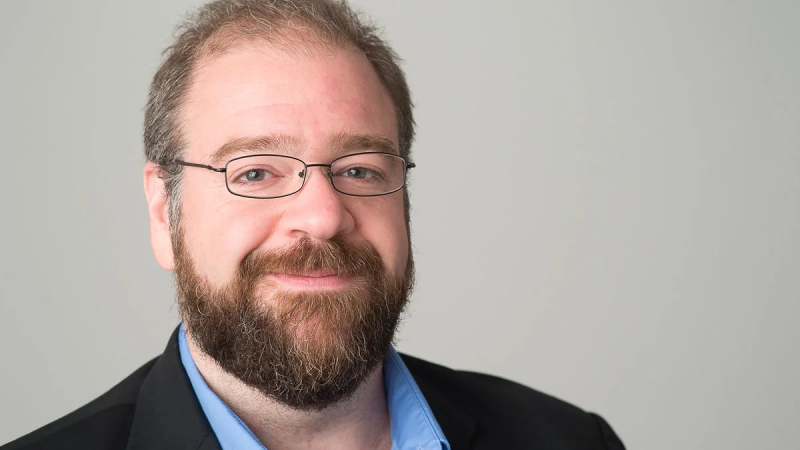
Interview with John Cerone Reflecting on International Law and Ukraine
By Lindy Nebiolo, MALD 2025 Candidate, The Fletcher School
It is truly unique to learn from someone involved in the field of international law, working alongside organizations as current crises change our understanding of the subject. With a vast amount of experience, it was difficult to narrow down questions to ask Professor John Cerone. Before teaching humanitarian law at The Fletcher School, Cerone worked with many organizations including the United Nations (UN), the International Criminal Court (ICC), and the Organization for Security and Cooperation in Europe (OSCE). He has taught in over 40 countries and has been regularly consulted as an expert in conflict environments and international humanitarian law. Cerone has acted as an advisor for international criminal tribunals, Special Advisor to the first U.S. delegation to the UN Human Rights Council, and many other roles.
Recently, he was asked to help Andriy Kostin, Prosecutor General of Ukraine, and his team on humanitarian issues facing the country. He also attended the American Society of International Law (ASIL) Summit celebrating the 75th anniversary of the Genocide Convention and Universal Declaration of Human Rights in December 2023. The event, titled “Stand Tall for the Rule of Law”, was convened in partnership with the Ukrainian government and held in Lviv, offering many moments for contemplation as the ideals of international law were discussed in an active war zone.
Cerone mentioned the mobile app for air raid alerts that visitors were required to download. The people in Lviv seemed “unfazed” by the alerts. They grew used to them going off frequently during the war for every missile or drone that left Russia in the direction of Ukraine.
Cerone explained that the summit was attended by 75 lawyers from Ukraine and another 75 lawyers from around the world. “Most international lawyers for whom law is their profession are likely to be members of the ASIL.” Cerone felt that aspect made the event interesting and that the event was aligned with Ukraine’s efforts. Regarding the discussions during the summit, Cerone talked candidly about the controversy arising from the summit occurring amid war. “The ASIL has taken a position in terms of who the aggressor is, which does create tensions when we look at issues beyond the jus ad bellum or reasons to conduct war,” adding that “war crimes are always committed by all parties to a conflict, although there is certainly a difference in degree.” He also mentioned tensions around human rights and minority rights issues, pointing out the ongoing discourse around ethnic Russian minorities in Ukraine.
On the role of international organizations, he highlighted that the UN General Assembly’s condemnation of Russian aggression was important and symbolic, and that it “enables the world to take a more united position,” but that humanitarian law was more complex. “It’s about how you fight the fight, not who started it,” Cerone quipped. Many of the complex issues that are arising from the war are international humanitarian law violations. The ICC has jurisdiction in Ukraine and is working together with the Prosecutor General of Ukraine to begin investigations into the alleged war crimes. There are also several NGOs and IGOs working on the ground in Ukraine. As a result of these ‘layers’, Cerone says, there have been attempts to coordinate both the domestic actors and the international groups.
There has been an ICC arrest warrant for Vladimir Putin, for example, for the unlawful deportation of Ukrainian children. But the ICC does not have jurisdiction over the crime of aggression, for something Cerone says there is a movement to create a separate tribunal to handle. He also noted that “with the limited resources of the ICC,” the court will likely only prosecute the “worst of the worst, and the numerous soldiers themselves who had perpetrated the war crimes” will be dealt with by Ukrainian domestic prosecution.
He also continues to support the Office of the Prosecutor General in an advisory role. He works remotely with the advisory group for the Prosecutor General and helps resolve questions on international humanitarian law. For example, Cerone has advised on “certain law of occupation issues, some status determination issues” that require a deeper understanding of humanitarian law. Finally, meeting the advisory group and the Prosecutor General’s staff at the summit was a “good opportunity” for Cerone. He believed that experience would help the team “by fostering trust, rapport, and deepened their relationship [as a group] in a way that is beneficial to all parties.”
A poignant moment was Cerone talking about how the most “moving” part of his work was meeting the people who were directly impacted. “As lawyers, we are trained to be objective in the analysis…You can forget about that human dimension, that human aspect of how people are affected. When you’re dealing with people who are immediately affected, the question of whether it’s lawful or not is secondary…You can’t forget about the human toll of the conduct that you’re analyzing.”
